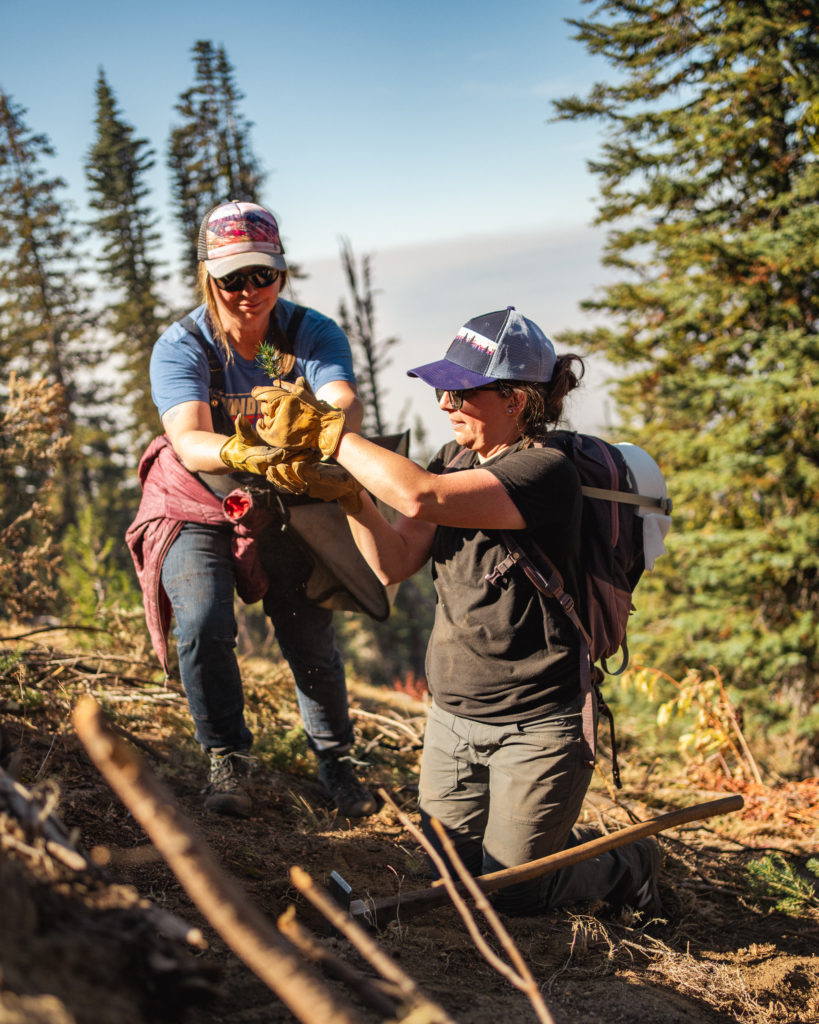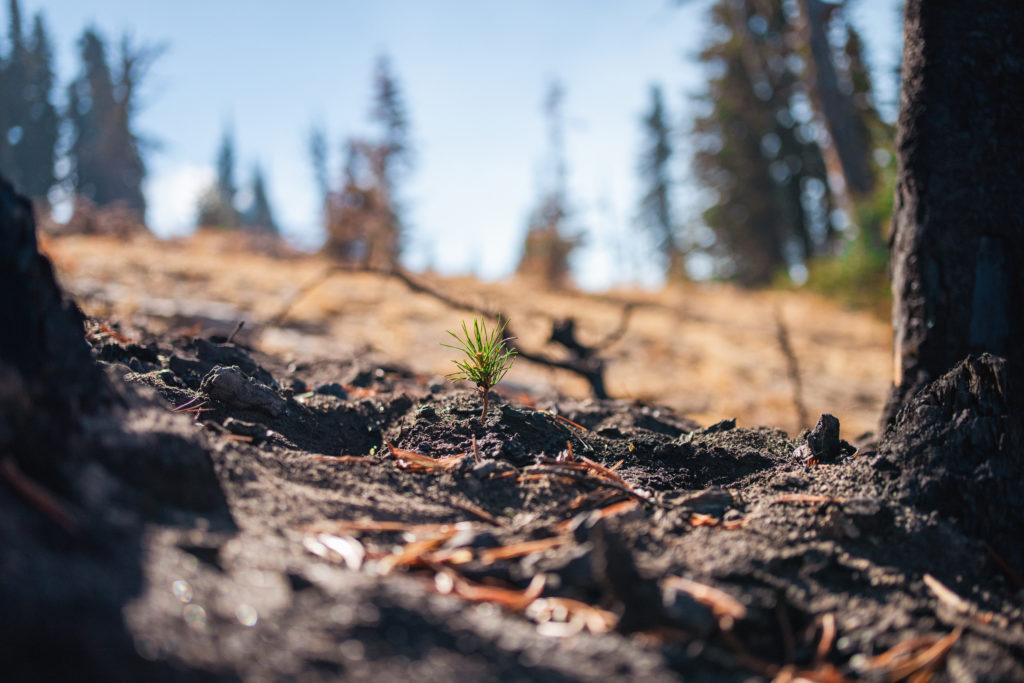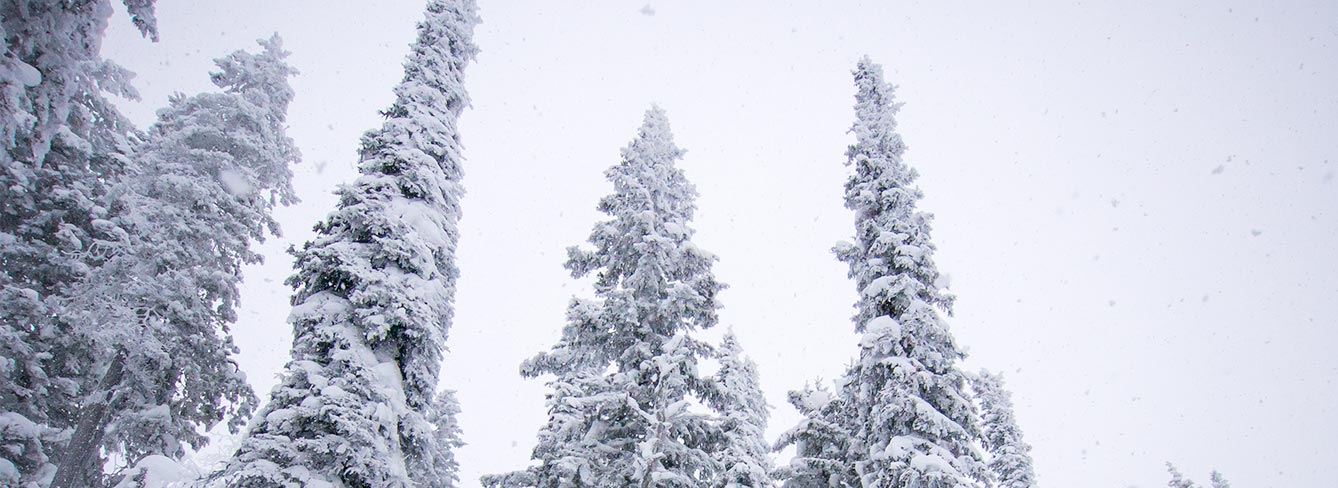Conservation Efforts Take Root at the Top of Brundage Mountain as Whitebark Pine Seedlings Go In the Ground
Armed with planting hoes, tote bags of carefully packaged seedlings, and a highly specific set of planting instructions, more than 45 employees and volunteers fanned out across the summit ridge of Brundage Mountain earlier this month to complete a key step in a conservation project that aims to preserve an important at-risk species of tree.
 Work crews from the Payette National Forest and Brundage Mountain Resort were joined by volunteers from the McCall Master Naturalists group for a workday on Thursday, October 13 to plant Whitebark pine seedlings in carefully selected microsites.
Work crews from the Payette National Forest and Brundage Mountain Resort were joined by volunteers from the McCall Master Naturalists group for a workday on Thursday, October 13 to plant Whitebark pine seedlings in carefully selected microsites.
Whitebark pine (Pinus albicaulis) is a slow-growing keystone species that grows in harsh, exposed sites at high elevations across the mountain west and helps stabilize soil, regulate runoff, and provide valuable nutrition to numerous wildlife species through its high-protein seeds. Whitebark pine is in rapid decline across its range and is proposed for federal listing as threatened under the Endangered Species Act.
The main threats to Whitebark pine populations include altered fire and climate regimes, white pine blister rust (Cronartium ribicola) and the mountain pine beetle (Dendroctonus ponderosae).
Brundage Mountain is home to some of the healthiest blister rust resistant populations of living whitebark pine trees in Idaho. Seeds from those healthy trees were collected in 2018 and cultivated into the seedlings planted last week.
600 seedlings were planted on the upper ridges of the mountain, from the recently burned area in upper Hidden Valley all the way to the upper slopes of the Lakeview zone. Crews were instructed to select planting locations with a lack of vegetation and overstory but that would be likely to get shade during the hottest hours of the afternoon.
“Proper planting technique is essential to seedling survival,” says Payette National Forest Botanist, Kristin Williams. “Seedlings must be handled very carefully so the roots are not injured and soil doesn’t get knocked off the root plug. We try not to expose the roots to any more sunlight than absolutely necessary. The goal is to get the root plug into the hole straight, to only plant to the root collar and to gently but thoroughly compact the soil around the seedling so there are no air pockets.”
After planting, the seedlings were watered in. Planting in late fall right before winter weather arrives is ideal because of temperatures, moisture and most of all, access.
“If we were to plant in the spring, we couldn’t access planting sites until the snow was mostly melted and then we would be looking at a near term forecast of hot and dry summer months,” says Williams. “The seedlings need time to establish when there is moisture available.”
This was the second major effort on behalf of at-risk trees this season. The first focused on improving the health of existing stands of Whitebark pine. During the last week of July, Brundage staff, Youth Conservation Corp interns and Forest Service staff spent an entire week cutting subalpine fir out from around whitebark pine trees. The work zone covered about 20 acres primarily between the Bluebird and Lakeview chairlift terminals.
Learn More About the July 2022 Daylighting Efforts
Thinning competing vegetation helps to ensure more sunlight reaches whitebark pine canopies and more water and nutrients are available to the trees, ultimately making them more resilient to bark beetles and natural and prescribed fire.
The Brundage Mountain units were analyzed and identified for Whitebark pine restoration in the Brundage Vegetation Management Plan EA signed in 2008. Testing confirmed the Brundage Whitebark population to be in the upper 25th percentile for genetic resistance to white pine blister rust, which makes the conservation of future seed crops and cone-producing trees a high priority.
One of the next steps in the project will be to collect more whitebark pine seed and grow more seedlings in the future. These seedlings will be planted out in other areas on the Payette and on other nearby National Forests.
Identifying additional tree stands and studying potential whitebark pine seedling planting areas will be part of any future terrain expansions on the mountain.
“One of our top priorities is to be good stewards of the land on which we operate,” says Brundage Mountain General Manager, Ken Rider. “We have a responsibility to care for our mountain ecosystem and to take what steps we can to preserve it for future generations.”
“The restoration of Whitebark pine fits well into our overall plans for restoring forested lands that are at high risk of wildfire,” said Paul Klasner, Forest Service Infrastructure Coordinator. “The Southwest Idaho Landscape project, funded by the Bipartisan Infrastructure Law, is focused on restoring forests to a resilient state that is more sustainable than it is now. Many of these areas, including Brundage Mountain, have been altered over time by insect attacks, introduced pathogens, past forest and fire management practices, clime trends and predictions of warmer and drier conditions.”
In addition to its work with the Payette National Forest, Brundage Mountain aims to help educate the public on the importance of the whitebark pine in the alpine ecosystem and to become certified as a Whitebark Pine Friendly Ski Area through the Whitebark Pine Ecosystem Foundation.


 Closed
Closed Open
Open



